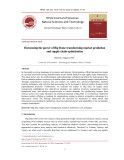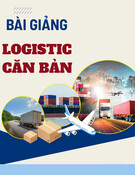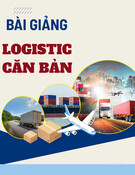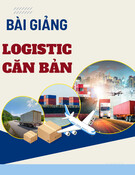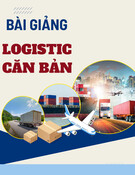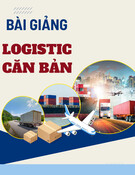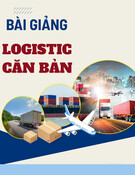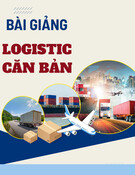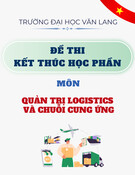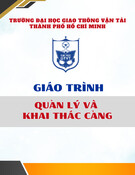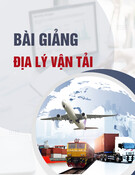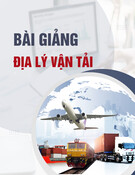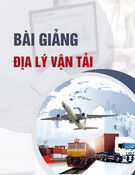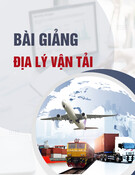
* Corresponding author
E-mail address: anang@stp-bandung.ac.id (A. Sutono)
© 2019 by the authors; licensee Growing Science, Canada
doi: 10.5267/j.uscm.2018.12.004
Uncertain Supply Chain Management 7 (2019) 427–438
Contents lists available at GrowingScience
Uncertain Supply Chain Management
homepage: www.GrowingScience.com/uscm
Supply chain management: implementation issues and research opportunities in tourism
industry
Anang Sutonoa*
aSekolah Tinggi Pariwisata Bandung, Jawa Barat Indonesia
C H R O N I C L E A B S T R A C T
Article history:
Received October 7, 2018
Accepted December 6 2018
Available online
December 10 2018
With worldwide growth in tourism, most of the countries have begun to consider the importance
of the tourism industry. However, the Indonesian tourism industry is not working with reasonable
performance to contribute to economic development. This industry is lacking a good supply
chain in hotel industry and the performance is not promising. Therefore, this study addressed this
issue by considering supply chain marketing planning capabilities and supply chain marketing
implementation capabilities to facilitate tourism industry with better supply chain management
in Indonesian hotels for attracting tourists. Thus, the primary objective of this study is to examine
the role of supply chain marketing planning capabilities and supply chain marketing
implementation capabilities to boost tourism industry performance. The results indicate that
supply chain management was the most crucial issue for attracting tourists. It was also found that
supply chain marketing planning capabilities and better supply chain marketing implementation
capabilities were the most important factors to enhance the tourism industry performance through
customer orientation and knowledge management.
ensee Growin
g
Science, Canada
by
the authors; lic9© 201
Keywords:
Supply chain
Customer relationship
management
Tourism industry performance
Marketing planning capabilities
Marketing implementation
capabilities
Customer orientation
Knowledge management
1. Introduction
Tourism is the fastest growing sector in numerous countries. Internationally, as an export class, its
ranking is fourth after fuel, food, and chemicals (UNWTO, 2012). Furthermore, it provides the
opportunity to create jobs as well as inspires progress in most developing countries. According to the
estimations, global tourism reached about US$ 1,075 billion in the year 2012, from US$ 1,042 billion
in the year 2011 (UNWTO, 2013). Therefore, the worldwide tourism industry has been growing day
by day having great economic importance for most developing countries (Oh, 2005; Roudi et al., 2018;
Briandana et al., 2018), like Indonesia. The existing performance of the tourism industry can be
increased with the help of better supply chain in the hotel industry since the hotel and the tourism
industries have an important relationship with each other’s (Holjevac, 2003; Mueller & Kaufmann,
2001). Good supply chain activities in hotels have the potential to enhance the tourism industry. With
this worldwide growth in tourism, nations have begun to consider the tourism industry on a priority
basis. Tourism and the hotel industry have a positive effect in numerous countries’ economy, giving
foreign currency, supporting the balance of payment in a positive way and having a positive influence
on debt repayments. The hotel industry is considered a central component of the tourism sector, and its





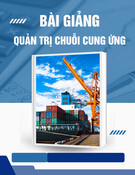
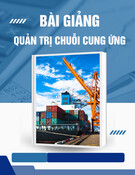
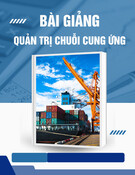
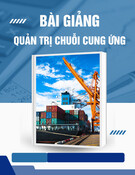
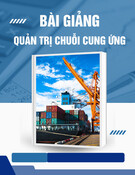
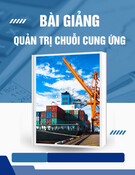
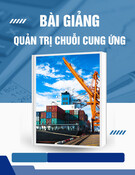

![Tổng quan môn học Quản trị logistics kinh doanh: [Thông tin chi tiết/Hướng dẫn/Tài liệu]](https://cdn.tailieu.vn/images/document/thumbnail/2025/20250604/nganga_00/135x160/624_tong-quan-mon-hoc-quan-tri-logistics-kinh-doanh.jpg)
